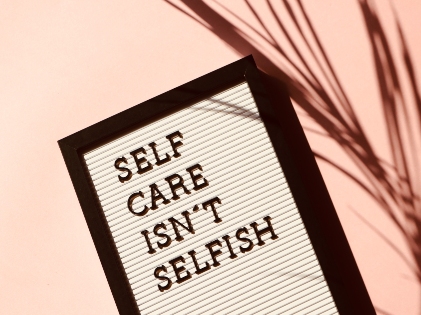
Why Companies Need a Holistic Corporate Mental Health Approach?

There is a growing need for companies to develop a holistic corporate mental health approach. With one in five employees reporting symptoms of depression, anxiety, or stress, it is clear that this is an issue that is not going away. Mental health conditions cost employers billions of dollars each year in lost productivity, and these conditions are the leading cause of long-term disability in the United States.
In order to have a healthy workforce, companies need to adopt a holistic corporate mental health approach that includes preventive and proactive strategies. Mental health should be viewed in the same way as physical health, with early recognition and intervention being key components of success. Employers should offer their employees access to resources that can help with mental wellness such as mental health days, flexible work arrangements, and counseling services. By taking these steps, employers can create a positive work environment that is conducive to employee productivity and well-being.
There are many ways for companies to develop a holistic corporate mental health approach, but some key steps include creating a dedicated mental health team.
BENEFITS OF SUPPORTING MENTAL HEALTH
 Mental well-being is just as important as physical well-being. The two are interconnected. When our mental health is good, our physical health usually is too. Conversely, when our physical health is not good, our mental health usually suffers too. There are many benefits to supporting mental well-being. Some of these benefits include improved moods, decreased stress levels, and reduced anxiety.
Mental well-being is just as important as physical well-being. The two are interconnected. When our mental health is good, our physical health usually is too. Conversely, when our physical health is not good, our mental health usually suffers too. There are many benefits to supporting mental well-being. Some of these benefits include improved moods, decreased stress levels, and reduced anxiety.
When people feel good mentally, they often perform better at work and in their personal lives.
Talking about mental well-being, Katy George, McKinsey’s chief people officer said that she has seen a rise in mental health issues in every employee. According to her, problems related to isolation, anxiety, and depression are increasing to a great extent.
For renowned Companies, It is so important to support their workers who are mentally disturbed, If they fail at doing it the productivity of their employees will be suffered.
Productivity aside, giving this kind of help to employees can enable them to do their best, most ingenious, and valuable work. Hilton Segel of McKinsey thinks that if any individual is in a state of extreme stress or sleep deprivation, he/she should tackle the matter in a creative manner and deal with the situation head-on. This in turn will help the employers as they allow each individual to express their creativity and deal with their unique emotional situation in a resilient manner.
MAKING MENTAL HEALTH A CULTURAL CONVERSATION
 You already know how necessary it is to help employees who are mentally disturbed. Now a question arises, how can companies support their employees?
You already know how necessary it is to help employees who are mentally disturbed. Now a question arises, how can companies support their employees?
Well, the first step is acknowledging that supporting mental health requires more than offering benefits such as increasing coverage for therapy. According to George, conversations need to be shifted from revolving only around mental health to more of a cultural discussion. It is not just about dismissing the stigmas attached to mental health, but also about creating a safe space for people to be able to talk about their needs in terms of mental health.
Learning programs for workers are the best way to support them, those programs will not only help staffers supervise their mental well-being, but also assist the condition of their partners.
The training programs are implemented to help employees recognize colleagues who might be in distress and to give assistance if they see indications of mental sickness or anxiety.
 We can take the example of McKinsey, the company that launched the program Mind Matters. Mind matters have 150 “mental health champions” in each of McKinsey’s areas across the globe. These people can encourage employees through the method of helping friends undergoing mental health issues at the same time also assisting as a bridge to support workers in difficulty giving the full slate of advantages accessible to them.
We can take the example of McKinsey, the company that launched the program Mind Matters. Mind matters have 150 “mental health champions” in each of McKinsey’s areas across the globe. These people can encourage employees through the method of helping friends undergoing mental health issues at the same time also assisting as a bridge to support workers in difficulty giving the full slate of advantages accessible to them.
THE WAY FORWARD
Pandemic has pressured many businesses to reconsider their connections with workers, from their motives for how, when, and where work receives completed to how they can improve workers’ on-the-job gratification. Benefiting staffers’ mental health is the main part of that mystery, as Hilton Segel says, “Work is such an essential phase of our lives, and employers have a responsibility to assist well-being in our employee base”.
More in Relaxation
-
`
Jennifer Aniston’s Timeless Tips for Health and Youthfulness
Iconic Hollywood actress Jennifer Aniston has long been admired for her acting prowess and seemingly ageless beauty and vitality. Now in...
November 22, 2023 -
`
Unleash Your Entrepreneurial Drive: 5 Strategies for Self-Motivation
5. Have an Undying Passion Passion is the driving force behind the world’s most successful entrepreneurs. Self-motivation becomes second nature when...
November 19, 2023 -
`
How to Go Vegan – The Right Way!
The vegan lifestyle has seen a significant surge in popularity lately, and rightly so. Embracing veganism not only fosters personal health...
November 12, 2023 -
`
7 Eye-Opening Reasons to Drink More Water
Water is frequently hailed as the quintessential elixir for life, and rightfully so. Constituting approximately 60% of our total body weight,...
November 1, 2023 -
`
Drake’s Workout Regimen: How the Canadian Rapper Stays Fit
The lights dim, the stage is set, and the crowd’s anticipation is palpable. When the beat drops, there is one Canadian...
October 24, 2023 -
`
Why Six-Figure Family Holidays Are Becoming the New Normal
In the panoramic landscape of the modern travel scene, a particularly glittering trend is emerging, akin to finding a diamond the...
October 21, 2023 -
`
Foods With High Water Content
Water is the elixir of life, and staying adequately hydrated is crucial for maintaining our health and well-being. While sipping on...
October 15, 2023 -
`
The Impact of Wearable Technologies in Health Research
In recent years, wearable technologies have emerged as a powerful tool in health research, revolutionizing how we collect and analyze data...
October 3, 2023 -
`
How Celebrities Stay Fit? Secrets of Chris Pratt, Jennifer Lopez & More
The glitz and glamor of Hollywood may make it seem impossible for celebrities to maintain an enviable physique. But it is...
September 29, 2023















You must be logged in to post a comment Login